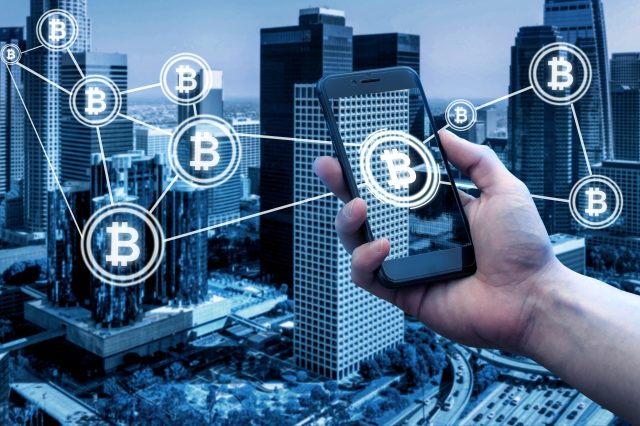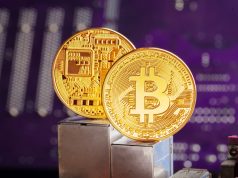You’ve probably heard the term DeFi floating around in the crypto world, but what exactly is it? And why should you care?
Decentralized Finance, or DeFi, is one of the most exciting innovations to emerge from the cryptocurrency and blockchain space. It promises to revolutionize the way we think about and interact with money—by giving users direct access to financial services without the need for traditional banks or financial intermediaries.
In this post, we’ll break down what DeFi is, how it works, and why it could be the future of finance.
1. What is DeFi?
At its core, DeFi refers to a movement aimed at building an open, permissionless, and decentralized financial system using blockchain technology. Traditional finance relies on central authorities like banks, brokers, and insurance companies to manage and facilitate financial transactions. DeFi, on the other hand, eliminates the need for intermediaries by leveraging smart contracts—self-executing contracts with the terms of the agreement directly written into code.
This means that DeFi platforms are decentralized, meaning they don’t rely on a central entity (like a bank or financial institution) to control or oversee transactions. Instead, they use blockchain networks (most commonly Ethereum) and smart contracts to automate financial activities like lending, borrowing, trading, saving, and more.
🚀 Pro Tip: While most people think of crypto as digital currencies like Bitcoin, DeFi brings crypto into the world of traditional financial services—but with a digital twist.
2. How Does DeFi Work?
DeFi platforms are powered by smart contracts, which are digital agreements that automatically execute when predefined conditions are met. These smart contracts are hosted on blockchain networks like Ethereum and Binance Smart Chain, and they’re immutable, meaning once they’re deployed, they can’t be altered.
Key Components of DeFi:
- Lending and Borrowing: Platforms like Aave and Compound allow you to lend your cryptocurrency to earn interest or borrow crypto by providing collateral.
- Decentralized Exchanges (DEXs): Platforms like Uniswap and SushiSwap allow you to trade cryptocurrencies directly with other users, without the need for a central exchange like Coinbase or Binance.
- Yield Farming and Staking: Yield farming allows you to earn rewards for providing liquidity to decentralized protocols, while staking involves locking up your crypto to support a blockchain network in exchange for rewards.
- Stablecoins: These are cryptocurrencies pegged to stable assets like the US dollar (e.g., USDT or DAI) and are used in DeFi to minimize volatility during transactions.
- Insurance: Platforms like Nexus Mutual allow users to purchase decentralized insurance, covering things like smart contract failure or price volatility in the crypto market.
🧠 Fun Fact: DeFi platforms don’t require you to go through lengthy approval processes, and they’re accessible globally, 24/7, with no bank holidays or geographical restrictions.
3. Why Does DeFi Matter?
DeFi represents a fundamental shift in the world of finance. Here are a few reasons why it matters:
1. Financial Inclusion
DeFi opens up access to financial services for anyone with an internet connection. In many parts of the world, people are unbanked or underbanked, with no access to basic banking services. DeFi platforms are helping bridge this gap by providing services to people who otherwise wouldn’t have access to traditional financial institutions.
2. Transparency and Security
Blockchain’s transparency allows anyone to audit transactions on the network. Every transaction made on a DeFi platform is publicly recorded on the blockchain, making it more difficult for bad actors to manipulate the system. Plus, with no centralized authority holding users’ funds, DeFi protocols are less vulnerable to hacking or corruption—assuming they’re well-designed.
3. Ownership and Control
In traditional finance, intermediaries (like banks) hold control over your money and can impose restrictions on how you use it. In DeFi, you are your own bank. You hold the private keys to your funds, giving you total control over your assets. This decentralization empowers individuals and removes the need for trusted third parties.
4. Better Returns
DeFi platforms often offer higher returns than traditional savings accounts or investment options. For example, lending your crypto on platforms like Aave or Compound can yield much higher interest rates than the average savings account at your bank. Similarly, liquidity providers and stakers can earn rewards for their participation in the ecosystem.
4. Is DeFi Safe?
While the DeFi space is incredibly promising, it’s also important to note that it’s not without risks.
Key Risks to Consider:
- Smart Contract Vulnerabilities: Smart contracts are only as good as the code that powers them. If there’s a bug or vulnerability, hackers could exploit it. In the past, several DeFi platforms have been hacked due to coding errors.
- Impermanent Loss: If you provide liquidity to a decentralized exchange, the value of the assets you’re holding could change relative to each other. This can result in “impermanent loss,” where you lose more value than you’d gain from the rewards.
- Regulatory Uncertainty: As DeFi grows, it could attract more scrutiny from governments and regulators. Different countries have varying stances on crypto and DeFi, so future regulations could affect how these platforms operate.
⚠️ Pro Tip: It’s crucial to conduct thorough research (also known as DYOR—Do Your Own Research) before diving into any DeFi platform, especially if you’re new to crypto.
DeFi is still in its early stages, and there’s a long way to go before it becomes fully mainstream. However, the growth of Ethereum 2.0, improved scalability solutions like Layer 2 networks (e.g., Polygon and Optimism), and advancements in DeFi protocols are making the space more accessible, secure, and user-friendly.
In the future, we could see DeFi platforms offer a more complete suite of financial services, such as:
- Decentralized credit scores
- Tokenized real estate investments
- Global remittance services
- Blockchain-based identity and credit systems
If these developments continue, DeFi could reshape the entire financial system, making finance more accessible, efficient, and inclusive than ever before.
Final Thoughts: DeFi and the Future of Finance
DeFi is reshaping the way we think about and use money. By cutting out intermediaries, it gives individuals more control over their finances, provides better returns, and creates a more transparent financial system. But, just like any new technology, it comes with risks.
As DeFi grows and evolves, it’s important to stay informed and engage with it responsibly. If you’re looking for financial freedom and a new way to interact with money, DeFi is definitely worth exploring—but always do your research and take the time to understand the risks.














